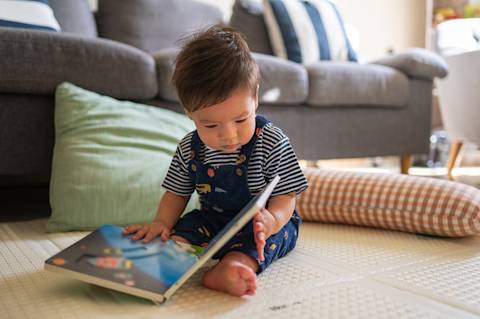Each of us has experienced stress at some point in our lives. Some stress can even be helpful, as it can motivate us to accomplish a goal. But a type of stress called toxic stress can negatively affect our children’s development. The good news is, there are many different ways you can help protect your child from the effects of toxic stress.

Doctors have identified three different types of stress: positive stress, tolerable stress, and toxic stress. Positive stress is that excited, fluttery feeling we get when we’re doing something new or trying to accomplish an important task. Children might experience this when they’re going to school for the first time or meeting new people, and it can actually motivate them to try harder.
Tolerable stress is that feeling when our whole body is on high alert. Our heart beats faster, breathing gets quicker, and palms get sweaty. Children might experience tolerable stress if they get in an accident on the playground or experience the death of a loved pet. Importantly, tolerable stress does not negatively affect children in the long term when they have the support and protection of their caregivers.
However, when traumatic events happen to us as kids, we can develop what doctors call toxic stress. This happens when children experience stress over weeks, months, or even years, and the stress builds up in their bodies. This long-term stress causes the stress response systems, also referred to as our fight or flight response, in the brain and body to be continually activated without relief. Childhood experiences such as physical or mental abuse, substance use in the home, violence, and more can lead to a buildup of toxic stress in children’s bodies, which can impact their development in a few different ways:
Toxic stress can actually change the structure of children’s growing brains. When they experience long periods of toxic stress, their bodies are constantly on high alert, as they’re watching out for signs of danger. Studies have shown that this can cause some areas of the brain to shrink or not develop properly. Without the protection and support of their caregivers, children can develop problems in learning, behavior, and mental health as a result.
Toxic stress can also negatively impact physical growth and development. When children’s developing bodies are constantly flooded with stress, the body thinks it’s under attack by a virus or illness and sends out cells to fight the stress. This can result in long-term health issues like heart disease, diabetes, and more. Toxic stress can also make it harder for the body to fight off actual viruses and diseases over time.
It can be difficult to identify toxic stress response in children, but there are some signs to look out for:
The inability to focus, plan ahead, or remember instructions
Showing symptoms of anxiety or depression
Difficulty coping with setbacks, disappointment, or other emotional moments
The inability to control their emotions
Difficulty trusting adults
For children who have experienced toxic stress, there are many different ways to protect them from experiencing the effects. As a caregiver, your support, love, and protection are incredibly important in helping them cope with toxic stress and avoid its long-term effects. Read more about how you can protect your child from the effects of toxic stress in our previous article.
One step you can take today to help your child cope with stress in a healthy way is to teach them breathing exercises they can do when they’re feeling upset. And as their caregiver, you can use this technique too! Read more and watch a short video to get started. If you think your child might be experiencing toxic stress, we recommend you talk to your pediatrician.






